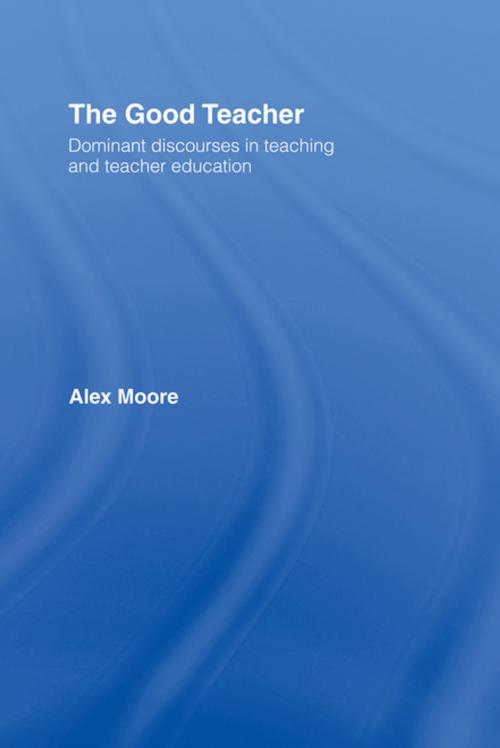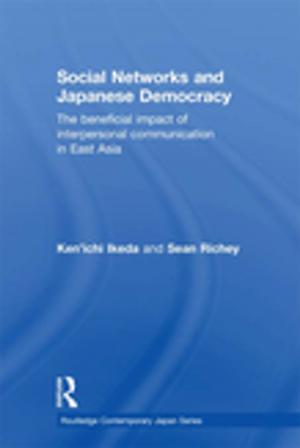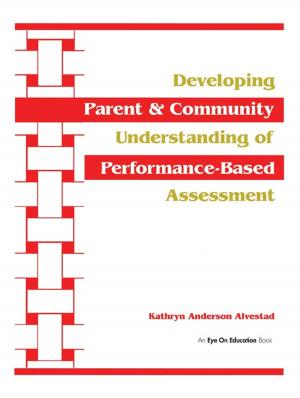The Good Teacher
Dominant Discourses in Teacher Education
Nonfiction, Reference & Language, Education & Teaching, Teaching, Teaching Methods| Author: | Alex Moore | ISBN: | 9781134308736 |
| Publisher: | Taylor and Francis | Publication: | May 20, 2004 |
| Imprint: | Routledge | Language: | English |
| Author: | Alex Moore |
| ISBN: | 9781134308736 |
| Publisher: | Taylor and Francis |
| Publication: | May 20, 2004 |
| Imprint: | Routledge |
| Language: | English |
Moore's insightful text explores and makes better sense of professional practice by examining that practice in the context of popular views. The book identifies and elaborates three dominant discourses of good teaching:
* the competent craftsperson, currently favoured by central governments
* the reflective practitioner, which continues to get widespread support among teacher trainers and educators
* the charismatic subject, whose popular appeal is evidenced in filmic and other media representations of teaching.
All of these are critiqued on the basis of their capacity both to help and to hinder improved practice and understandings of practice. In particular, it is argued that the discourses all have a tendency, if not checked, to over-emphasise the individual teacher's or student teacher's responsibility for successful and unsuccessful classroom encounters, and to understate the role of the wider society and education system in such successes and failures.
Winner of a Society for Education Studies book prize in 2005, this is a well-informed source of advice and support for teachers and anyone considering teaching as a career.
Moore's insightful text explores and makes better sense of professional practice by examining that practice in the context of popular views. The book identifies and elaborates three dominant discourses of good teaching:
* the competent craftsperson, currently favoured by central governments
* the reflective practitioner, which continues to get widespread support among teacher trainers and educators
* the charismatic subject, whose popular appeal is evidenced in filmic and other media representations of teaching.
All of these are critiqued on the basis of their capacity both to help and to hinder improved practice and understandings of practice. In particular, it is argued that the discourses all have a tendency, if not checked, to over-emphasise the individual teacher's or student teacher's responsibility for successful and unsuccessful classroom encounters, and to understate the role of the wider society and education system in such successes and failures.
Winner of a Society for Education Studies book prize in 2005, this is a well-informed source of advice and support for teachers and anyone considering teaching as a career.















